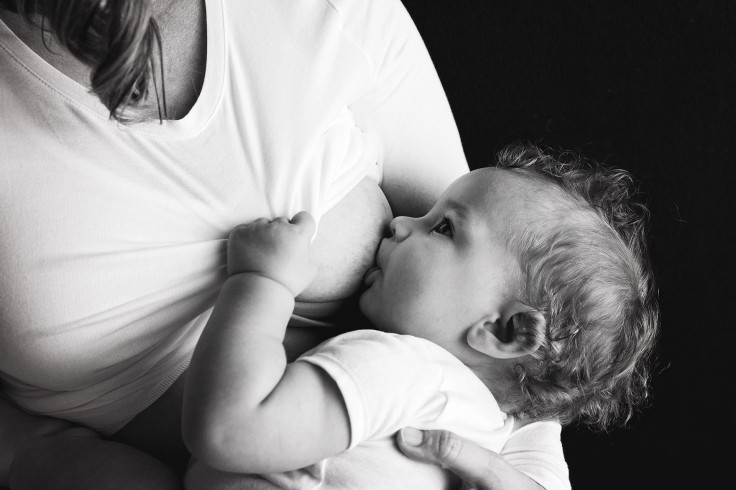Breastfeeding May Prevent Type 2 Diabetes In Women, Finds Study
KEY POINTS
- The American Academy of Pediatrics: Infants be breastfed exclusively for first 6 months of life
- Breastfeeding offers great health benefits for both the baby and the mother
- Study: Mothers who breastfeed are protected from type-2 diabetes even after several years
Breast milk is the healthiest and safest food for babies and breastfeeding is one of the most effective ways to ensure a child's health. As important as it is for babies, breastfeeding also offers great health benefits for women.
Researchers have long understood that women who breastfeed have lower risks of developing Type 2 diabetes, even decades after their children had been weaned. A new study explains how this benefit arises and the findings are published in the journal Diabetes.
The researchers at the UT Southwestern Medical Center found that breastfeeding secured the delivery of fat and sugar for breast milk production by altering the insulin sensitivity of organs that supply or demand these nutrients.
Their hypothesis is that breastfeeding alters the way a woman’s body uses the insulin hormone. Although pregnancy reduces the body’s sensitivity to the hormone, lactation might restore insulin sensitivity to a pre-pregnancy state.
The research team recruited 18 women who had given birth recently. While 12 of them were exclusively breastfeeding or supplementing their babies with less than 6 ounces of formula per day, another six formula-fed their babies.
At six weeks postpartum, the study participants underwent a test that quantifies insulin sensitivity. And at eight weeks postpartum, they also underwent magnetic resonance spectroscopy—a type of imaging that measured the amount of fat in their livers.
The researchers found that irrespective of the way they fed their babies, all of them had low blood insulin concentrations. However, women who breastfed their babies produced 2.6 times more glucose and released 2.3-fold more fatty acids from their storage in their fat tissues compared to the formula feeders.
They found that the hormone 'prolactin' which stimulated breast milk production was higher in lactating mothers. And higher levels of this hormone were accompanied by lower levels of fatty acids in the blood and lower levels of fat in their livers.
The findings made it evident that breastfeeding increases insulin sensitivity in highly insulin-sensitive organs. The changes in insulin sensitivity and levels among women who have breastfed might explain the legacy benefit.
The researchers highlighted that a better understanding of this phenomenon could help researchers find novel ways to encourage breastfeeding in mothers who would like to do it but might be suffering from low milk supply. Finding ways to stimulate insulin-sensitive tissues to supply more nutrients into the bloodstream could boost breastmilk supply.
"Lactation is millions of years old, but we still have a long way to go before we understand all there is to learn. If we know better how it happens in the body, we can help improve the health of women and children," said the study’s lead author Ramos-Roman.
A previous study found that increased fat mass in the lower body offered protection against type 2 diabetes.

© Copyright IBTimes 2024. All rights reserved.






















